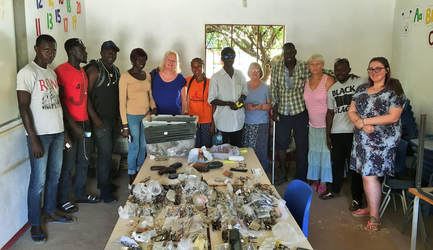 The eye-care team: Bev, 5th from left; Sue, 5th from right The eye-care team: Bev, 5th from left; Sue, 5th from right By Kira Dalton January - Eye Care My January visit was mostly taken up by helping with our annual Eye Care Programme, again ably conducted by Bev Breakwell and her sister-in-law, Sue Steel, from Warwickshire. We sight-tested over 160 patients in 1½ days, as well as seeing another 60 or so patients at Faraba Banta School en route. Everyone was examined by Bev, a qualified Optician, before Sue dispensed free second-hand spectacles, as required. Working with us on both days was the Senior Eye Specialist from Soma Hospital, Ebrima Jadama. Those who needed cataract or other eye surgery were immediately examined and scheduled for surgery with him the following week. For all concerned, it was an enormously productive and satisfying couple of days. ‘Drop the Cane and Chain Campaign’ goes from strength to strength February is the month for purchasing our annual drug requirements for the Health Centre in Jappineh, at Banjul Pharmacy. This year we spent over 320,000 dalasis (around 5,000 GBP). I’m delighted to report that a full half of this figure was raised by the Health Centre’s own sales of medicine during the previous year. Each year the staff aim to make the Health Centre more and more self-sufficient; their ultimate objective is a completely sustainable Centre, run by the community with no outside help. Banjul Pharmacy didn’t have some items in stock so further boxes were purchased from the Malik and Value Pharmacy wholesale divisions – 72,000 dalasis worth. All supplies are divided according to disease patterns and packed into cartons for collection each month. The rest are kept in an air-conditioned warehouse in Kotu. We took fifteen boxes in total, because supplies in Jappineh had run down following a busy few months. While I drove us there, Fanding Manjang was organising everything in advance by phone. With us were two experienced psychiatric nurses from the Tanka Tanka Psychiatric Hospital, Fatoumatta Jallow and Yankuba Suwareh. They would do the 3-day training session for our Health Centre Staff and for the Marabout's people [marabouts are traditional healers whose treatment includes herbs, canes and chains]. The nurses had been carefully briefed by Dawda Samba, who heads up the mhLAP for Gambia (mental health Local Advocacy Programme) run by the World Health Organisation (WHO). Dawda had personally conducted both initial training sessions of the ‘Drop the Cane and Chain Campaign’ (see previous reports). He and Fatou had also been among the monthly outreach visitors who go to the Marabout’s hospital (Njie Kunda) to check on medication, diagnosis, and the on-going care of their mentally ill patients.
We left Brufut before 7am and managed to get to Jappineh just after 10am, to make the most of our time there. The plan was to conduct half a day’s training in English at the Health Centre and then to repeat a simplified version, in Mandinka local language, at the Marabout's establishment after lunch. The photos here show the well-received sessions held at both locations, which are only some 500 meters apart. The highlight, for me, was the final session when both groups were brought together to discuss how best to prevent relapse and ensure good continuity of care when patients are discharged. There is already close collaboration with the Marabout’s team. They routinely call the Health Centre staff to come and see new admissions on arrival, when they conduct physical examinations as well as suggesting what drugs to administer. It has also been agreed that each patient will be given a record card detailing all their treatments (traditional and Western) and that the Health Centre staff will be notified when a patient is about to be discharged. This will ensure that the patients go home with sufficient medication, and that their family support will have been well-briefed. There is potential for follow-up home visits, and written records that can be shown to any other health facility they might need to visit in future. Our mutually agreed objective is now to minimize relapses and reduce the need for re-admissions. Major steps are being taken for mental health in this area of Gambia, as these smiles during training surely indicate.
0 Comments
Your comment will be posted after it is approved.
Leave a Reply. |
News DiaryThe News Diary is a regular account of all that is happening at The African Oyster Trust. Please pop back for regular updates, follow us on Twitter or sign up for our RSS feed to have the latest news sent straight to your computer! AuthorsThe news diary is written by a number of people close to the work of the African Oyster Trust, including founder James Holden, his co-directors, trustees and volunteers. Archives
February 2024
Categories
All
|

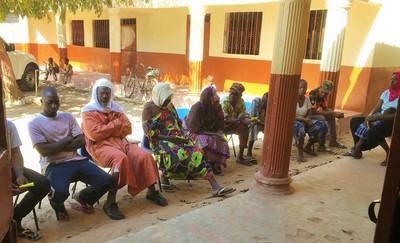
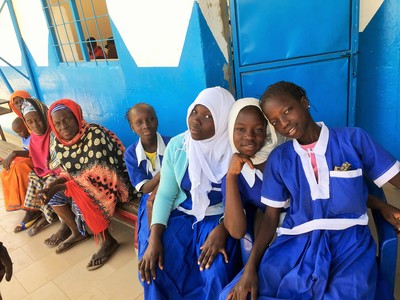
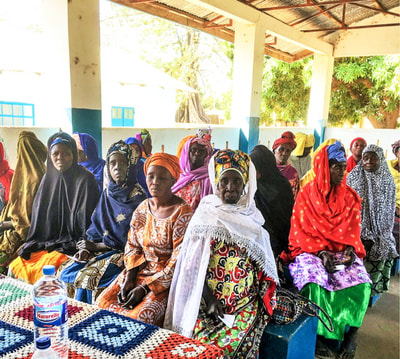
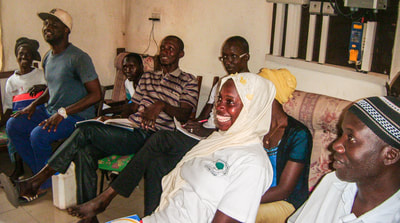
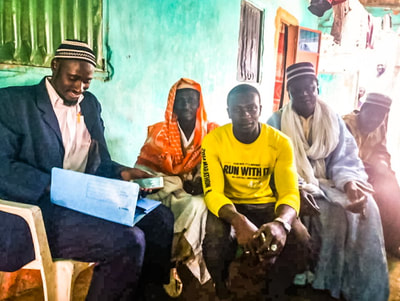

 RSS Feed
RSS Feed